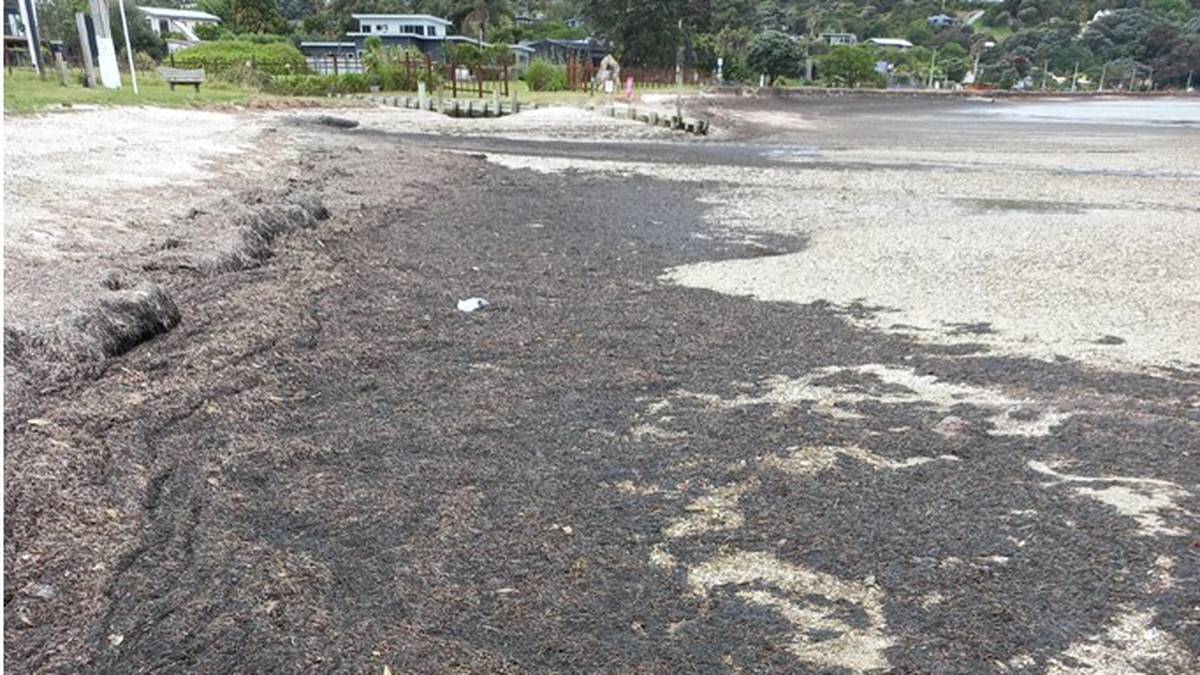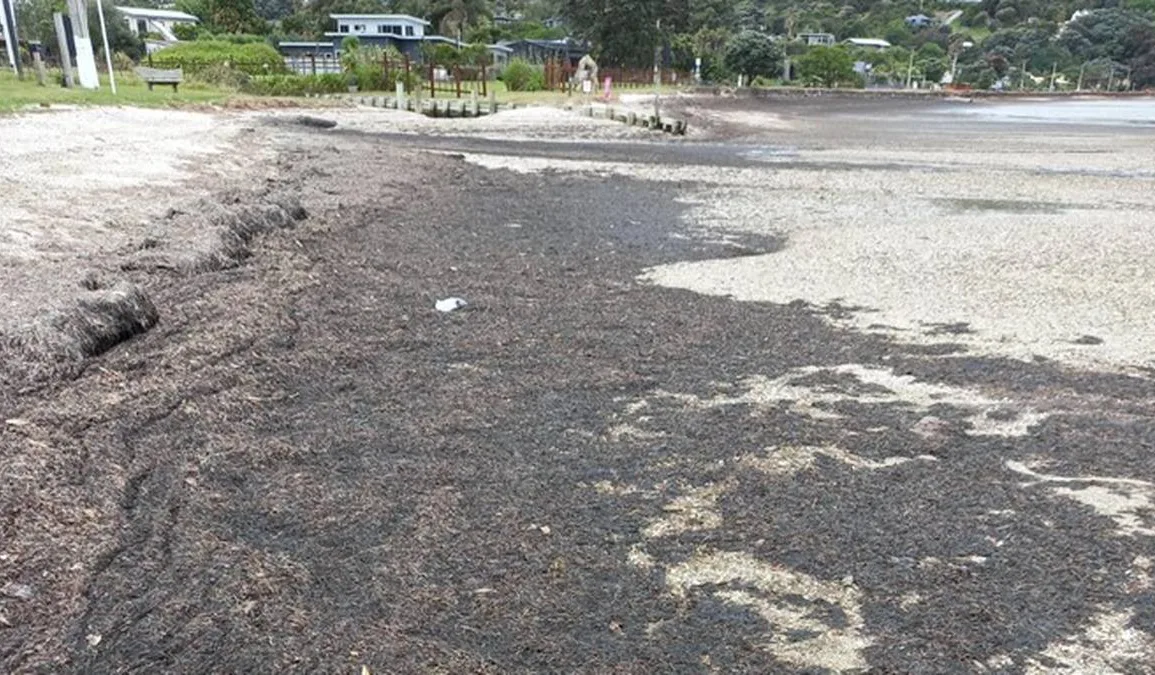
Black algae containing the cyanobacteria Okeania spp has formed on Blackpool Beach on Waiheke Island in December 2023.
Waiheke residents and tourists are being warned to avoid black algae and shellfish on two of the island’s beaches.
New Zealand Food Safety said the public shouldn’t collect or eat shellfish – such as mussels, oysters, pipi and cockles – from Waiheke’s Surfdale and Blackpool beaches because they might contain biotoxins.
They should also avoid wading into the water or touching the algae.
“An algae-like organism called Okeania spp has been detected on beaches at Surfdale and Blackpool on the southern side of Waiheke Island,” Vincent Arbuckle, NZ Food Safety deputy director-general said.
He said Okeania spp is a cyanobacteria that forms into slimy, dark-coloured mats on the beach.
As these decompose, they turn into a stinky sludge.
“It can also produce a toxin called Lyngbyatoxin-A, which can cause skin and eye irritation and respiratory issues,” Arbuckle said.
“Samples of the mats were collected by Auckland Council for testing, which has confirmed the presence of Okeania spp and Lyngbyatoxin-A.”
The types of shellfish that can be affected by the toxins include bivalve shellfish such as mussels, oysters, tuatua, pipi, toheroa, cockles, and scallops, as well as pūpū [cat’s eyes], Cook’s turban and kina.
“The risks of this toxin contaminating shellfish is unknown, so this warning is precautionary until we can find out more,” Arbuckle said.
“It’s important to note that cooking shellfish will not destroy biotoxins.”
Finfish are not included in the public health warning at this stage, but Arbuckle advised people to gut the fish and discard the liver before cooking.
If anyone becomes ill after eating shellfish from an area where a public health warning has been issued, phone Healthline for advice on 0800 611 116, or seek medical attention.
They are also advised to contact their nearest public health unit and keep any leftover shellfish for testing.
Commercially harvested shellfish – sold in shops and supermarkets or exported – is subject to strict water and flesh monitoring programmes by NZ Food Safety to ensure they are safe to eat, Arbuckle said.
Staying safe at the affected beaches
The beaches where the algae is present remain open to the public but Auckland Council advises the following:
- Avoid contact with the algae, including wading in affected areas, as it could lead to skin, eye and respiratory irritation
- If you feel unwell as a result of contact with the bloom, you should contact your doctor, or call Healthline on 0800 611 116
- Do not gather or take algae from the beach for things like using on your garden



